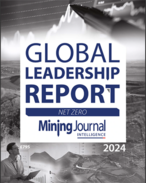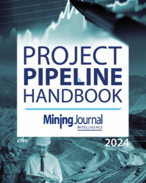This article is 10 years old. Images might not display.
The organisation´s president, Jose Fernando Coura, warned that persistent difficulties concerning ‘doing business in Brazil’ coupled with ongoing uncertainty over the country’s new mining code were making it near impossible to invest in new projects.
Backed by foreboding statistics showing a near 30% drop since 2012 in expected investment in the sector (currently $US53.6 billion for 2014-18, down from $US75 billion for 2012-16), Coura stated that mining in the country was passing through a difficult moment, with prices falling and reductions in investment.
Speaking at the inaugural Brazilian Mining Forum at the Minas Gerais state government headquarters in Belo Horizonte, Coura also forecast a further decrease in total mineral production for the country this year, with the predicted $US43 billion the lowest figure since 2010 ($39 billion) and well down from the $53 billion record in 2011.
He highlighted how this trend had put Brazil well behind key rival Australia in relation to iron ore production, with the former bogged in the reworking of its national mining code, hovering at around the 400Mt mark since 2011 (415Mt in 2013), while the latter had continued to rise steadily to 525Mt in 2013, having passed Brazil in 2008 after years producing slightly less than its Southern Hemisphere competitor.
Despite Coura´s strongly worded and somewhat politically motivated admonitions (Brazil´s Minister for Mining and the two federal deputies developing the new mining code were all present), the forum also heard snippets of optimism from the likes of mining giants Anglo American and CBMM, whose representatives highlighted Brazil´s vast potential and capacity for major, successful and world-class mining projects if planned and developed in the appropriate ways.
Anglo American´s CEO for iron ore in Brazil, Paulo Castellari, commented that the basic conditions for mining were certainly present in Brazil but that you had to be patient, invest in the country and “be a part of it” to be successful.
CBMM president Tadeu Carneiro focused on how over a 50-year period, the Brazilian company had established itself as the world´s premier niobium producer, with its continuing strong growth and development of cutting-edge technologies and techniques examples of what can be achieved in Brazil under the right conditions.
In relation to the new Brazilian mining code, despite speeches by Mining Minster Edison Lobao and federal deputy and chief code developer Leonardo Quintao, little new light was shed on the situation, although considerable rhetoric assured the forum that the government had been listening to all and sundry and was almost ready to vote. While many are saying the law will not pass until 2015, there is still a chance of a resolution by the end of 2014, political will permitting.
As such, it is no surprise that the majority of speakers at the forum touched on one key point: Brazilian mining needs to get moving again, ASAP.
Simon Tarmo is general manager, Brazil, for Aspermont Limited, publisher of NotÃcias de Mineração Brasil (Mining News Brazil), a media partner of the Brazilian Mining Forum.























